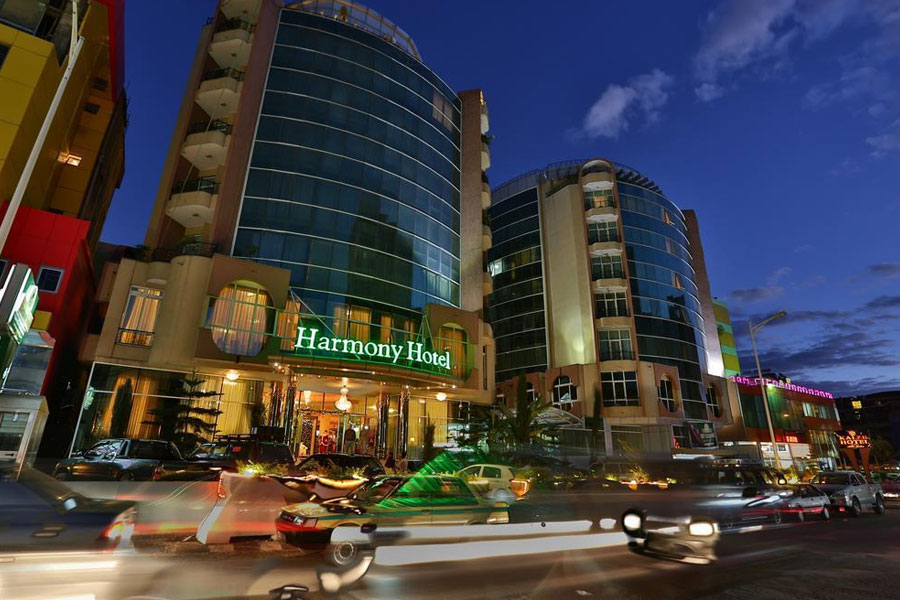
Fortune News | Jul 11,2021
Jul 31 , 2021
By Eden Sahle
Gone are the days where my family and I used to wake up to the singing of the birds nested at our house's old olive tree. Last Friday, I was woken at around 3AM by the sound of a bunch of strangers trying to jump the fence of our house. They were there to rob us. In desperation, I switched on the lights, and that altered them that we have woken up. They went back out the same way they got in. Crisis averted, for the time being.
The day after, our neighbour told my father that his house had been robbed. He lost valuable items. It may very well have been the same robbers, but our neighbours were either sleeping too deeply or the uninvited strangers have taken a lesson and become less noisy as they jumped the fence that time around. The incident has become so familiar that our community has stopped being shocked by such events.
Just a few years back, such intrusions were rare. People in our community used to leave valuable things in vacant spaces inside compounds for weeks and months. They used to get their items back as they placed it. Safety was the last thing we worried about. Such days are surely over now.
Up until January 2020, things used to be different. The police conducted regular community meetings and checked on the civilian guards to ensure that they remained alert during the day and night. They went door to door, asking about security concerns to make sure everyone in the area felt protected. Admittedly, such robberies were low at the time, and apparently, the police were convinced that ours was a low-risk area.
But when the law enforcement bodies reduced their visibility, the robbers increased theirs. When they came back this time, they were not just a few lone individuals breaking and entering. They are usually in groups and bring with them things like knives. Some of the community members that caught the robbers were shocked to find they were underage.
Although such reports of robbery are committed too frequently, they have failed to receive lasting and persistent attention from police and the City Administration. Temporary security measures only scratch the surface of this organised crime. And the more burglary issues are put on the back burner, the more criminal activities can thrive, causing severe harm and chaos.
Considering that Ethiopia is one of the poorest countries in the world, this does not surprise anyone. There is often a high correlation between crime and poverty. But it shows how much work the city administration and the police have to exert to support the children flocking around the city's streets, sniffing glue during the day and attacking communities and pedestrians at night.
The police should use a different approach. I have witnessed several times law enforcement officers chasing these homeless children from one street to the other. The children always come back to the parts they were chased from, and the police chase them again. This is not sustainable.
The burden of protecting lives and the properties of the city’s residents lies on the City Administration and police despite the underlying poverty problems that might limit the measures they can take to help the street children. They should step up to the difficult task of developing social support systems and get the children from the streets to schools. They should also actively and effectively execute prevention systems in collaboration with the public that is doing more than what is expected of it.
Given the extensive range of causes of crime in the capital, preventive measures addressing the source of the problem can have a tremendous impact on decreasing crimes now and in the long run. Critical in this is to not lose vigilance and assume that some areas are safe just because police have spent some time carrying out checks. Lasting solutions come from active community policing and engagement with children out on the streets that desperately need to be lifted out of poverty and given opportunities.
PUBLISHED ON
Jul 31,2021 [ VOL
22 , NO
1109]

Photo Gallery | 172144 Views | May 06,2019

Photo Gallery | 162372 Views | Apr 26,2019

Photo Gallery | 152163 Views | Oct 06,2021

My Opinion | 136364 Views | Aug 14,2021





Dec 22 , 2024 . By TIZITA SHEWAFERAW
Charged with transforming colossal state-owned enterprises into modern and competitiv...

Aug 18 , 2024 . By AKSAH ITALO
Although predictable Yonas Zerihun's job in the ride-hailing service is not immune to...

Jul 28 , 2024 . By TIZITA SHEWAFERAW
Unhabitual, perhaps too many, Samuel Gebreyohannes, 38, used to occasionally enjoy a couple of beers at breakfast. However, he recently swit...

Jul 13 , 2024 . By AKSAH ITALO
Investors who rely on tractors, trucks, and field vehicles for commuting, transporting commodities, and f...

Oct 4 , 2025
Eyob Tekalegn (PhD) had been in the Governor's chair for only weeks when, on Septembe...

Sep 27 , 2025
Four years into an experiment with “shock therapy” in education, the national moo...

Sep 20 , 2025
Getachew Reda's return to the national stage was always going to stir attention. Once...

Sep 13 , 2025
At its launch in Nairobi two years ago, the Africa Climate Summit was billed as the f...

Oct 5 , 2025 . By NAHOM AYELE
In Meqelle, a name long associated with industrial grit and regional pride is undergo...

Oct 5 , 2025 . By BEZAWIT HULUAGER
The federal government is set to roll out a new "motor vehicle circulation tax" in th...

Oct 5 , 2025 . By NAHOM AYELE
The Bank of Abyssinia is wrestling with the loss of a prime plot of land once leased...

Oct 5 , 2025 . By BEZAWIT HULUAGER
The Customs Commission has introduced new tariffs on a wide range of imported goods i...